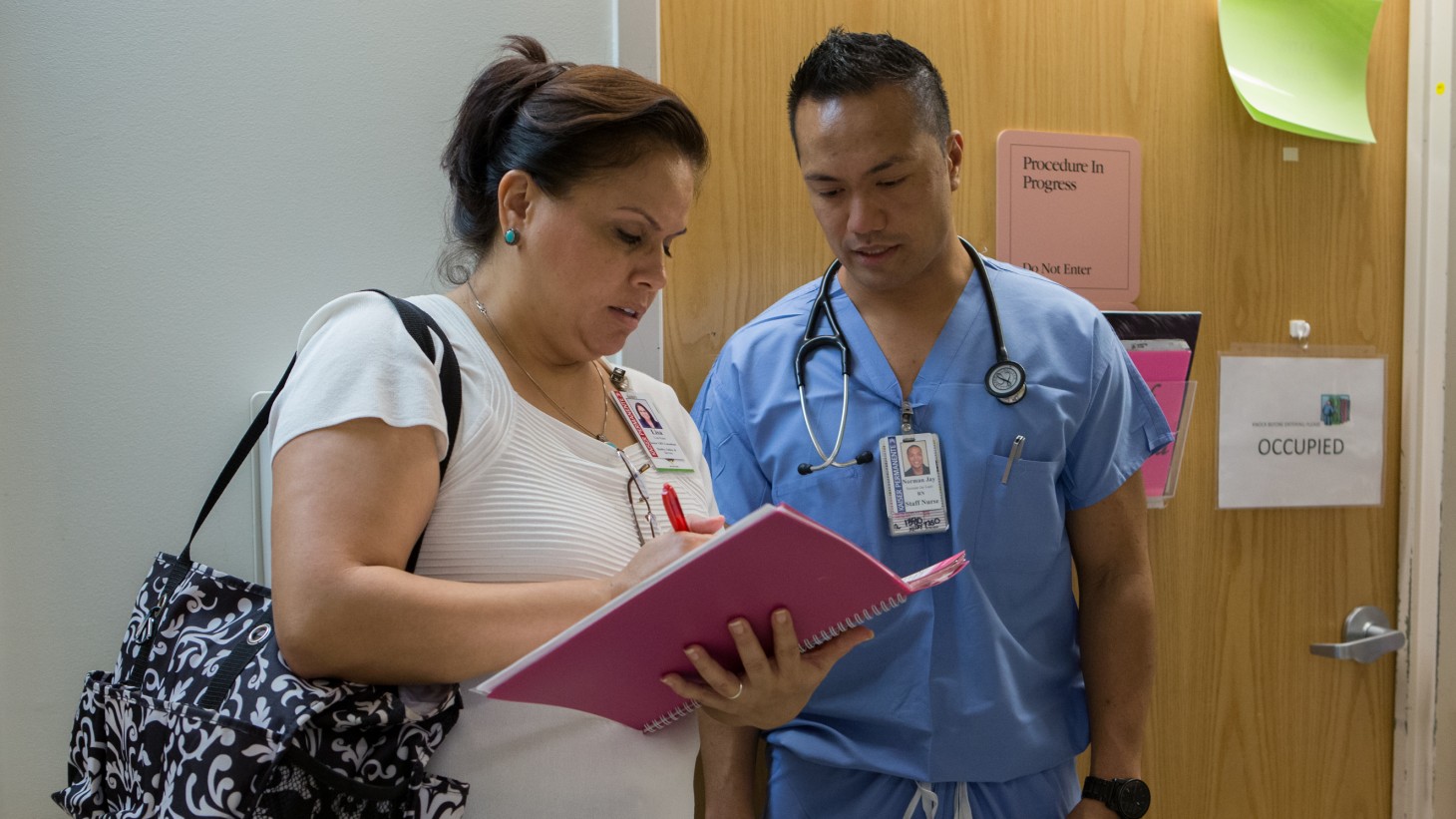
Lisa Kane, UBT consultant, harnesses teams' enthusiasm for improving service and quality.
Tidbits from KP regions, coast to coast
Colorado
Unit-based teams are hitting their stride, with 190 out of 261 teams reaching a Level 4 or 5 on the five-point Path to Performance. Teams are engaged in several types of projects, including those that save the organization money. The region will see a financial savings of $1.85 million this year through the 175 affordability projects of UBTs. The five UBT consultants in the region are coaching teams impacted by regional restructuring and helping those teams rebound quickly. Teams also are focusing on workplace safety, patient safety and HEDIS measures (Healthcare Effectiveness Data and Information Set).
Georgia
Starting in May and running through December 2015, Georgia medical centers are conducting an experiment. This region-wide test involves using greeters to usher in members. During the trial period, 15 greeters will make the member feel welcomed and convey the message they are important to Kaiser Permanente. Greeters also will answer questions, escort members to their appointments, maintain waiting rooms, ensure wheelchairs are available and welcome members with a smile. “They will provide a concierge-type member experience,” says Elizabeth Ramsey, the Georgia region’s senior manager of loyalty and retention.
Hawaii
The Hawaii region recently re-set its 57 unit-based teams’ scores on the Path to Performance to Level 1. Three consultants—two also are registered nurses and one is a project manager—will help teams quickly advance as they meet such core requirements as sponsor training. The region is unique in that, for now, one union (Hawaii Nurses Association/OPEIU Local 50) is in the Coalition of Kaiser Permanente Unions, while other unions are not. Although that can be challenging, consultants say teams still focus on the patient and want to do improvement work. “We help each other work through obstacles with our teams and understand the data,” says Lisa Kane, UBT consultant and project manager.
Mid-Atlantic States
In February, when home health orders came in to Health Information Management Services Northern Virginia, the average turnaround time was 4.4 days. By creating red folders for the orders, adding a cover sheet that says “stat” and date stamping the order as soon as it arrives, the team cut turnaround time to three days by April 2015—even as the number of orders went up from 673 in February to 747 in April. “This was important to the workflow, because when home health agencies called to follow up on the orders it interrupted our work,” says LaShawnda Powell, a senior health information management assistant in Woodbridge, Virginia, and member of OPEIU Local 2. “We have determined that our new process is successful and we’ve adopted it.”
Northern California
Last year, unit-based team consultants and union partnership representatives formed a regional UBT to work on issues related to consistency and accountability for Northern California’s 1,300 frontline teams. Now the group has established three subgroups to review the 2015 National Agreement, which includes new provisions for UBTs. Each subgroup has a distinct focus area: sponsorship, UBT validation and assessment, and tools to support contract expectations. The subgroups will develop recommendations for review by a committee of labor members and management representatives. The regional co-leads will submit final recommendations to the regional LMP Leadership Council by year’s end.
Northwest
UBT Resource Team members have been busy refining the region’s new process for assessing teams on the Path to Performance. Co-leads and sponsors of 415 unit-based teams in the Northwest work with their consultant to ensure each team advances or sustains high performance throughout the year. Improvement Advisors help co-leads create action plans and provide direct training to move teams along or refer them to the appropriate subject matter experts. A majority of teams at Levels 2 and 3 will advance to high performance within the next 90 days due in large part to the work of the UBT Resource Team.
Southern California
Playing games at work usually is considered taboo. But that’s exactly how a group of regional UBT staff members spent a recent afternoon when they learned to play the “Leading Innovation Game.” Created by Kaiser Permanente’s Innovation and Advanced Technology team, the board game is designed to help employees overcome challenges that can doom the best ideas. Starting this fall, regional UBT staff will train team co-leads and sponsors, who will share the game with unit-based teams at their facilities. “Most teams come up with great ideas but they aren’t always aware of potential pitfalls,” says Rosalyn Evans, UBT practice leader for Southern California. “This board game gives them hands-on experience to develop innovation in a risk-free environment.”
